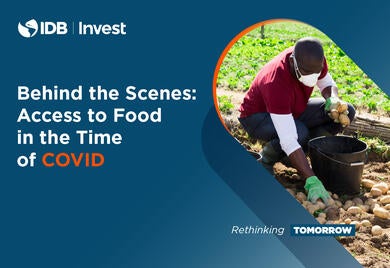
Why is additionality key for private sector development finance?
To meet the ambitious targets laid out by the Sustainable Development Goals (SDGs), it is necessary to accelerate collective action, coordination, and resource mobilization across the public and private sectors. Public sector resources alone are not sufficient to bring development finance from the “billions to trillions” required to achieve the SDGs.

All-inclusive hotels: A key for Latin America and the Caribbean’s growth
The traditional all-inclusive concept has significantly evolved in recent years to better adapt to changing consumer preferences, demographics and booking patterns. Guest behavior and expectations are being reshaped by a shift in consumers’ mindset towards travel and the disruptive impact of technology. Travelers are increasingly seeking personalization and authenticity in their vacation experiences, more involvement and connection with the local community, and a genuine engagement in environmentally responsible practices—all of this while maintaining full control of their choices and increasingly relying on mobile and electronic devices as a preferred booking method. A revamped all-inclusive 2.0 model is becoming more sensitive to these consumer needs and undergoing an exciting metamorphosis.

Behind the Scenes: Access to Food in the Time of COVID
The agribusiness sector has proven particularly resilient. How have Latin American food production value chains fared during the crisis and what strategies are they taking to confront new challenges?

What is the private sector’s role in the path to development? The case of Paraguay
The productive sector of Latin America and Caribbean countries faces constant challenges. In the case of Paraguay, notable challenges include difficulty accessing financing and the lack of infrastructure to boost development. However, during the last decade this country has gradually positioned itself in international trade thanks to the development of its agri-food industry, among other factors. Thus, in research developed by the Inter-American Development Bank Group, we have detected five areas in which the private sector can support the development of Paraguay: